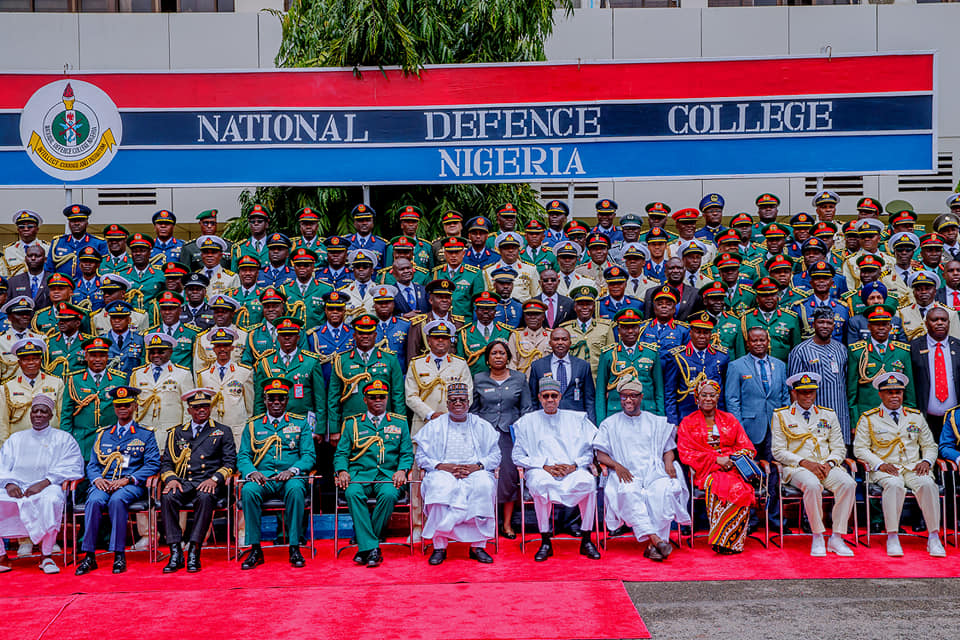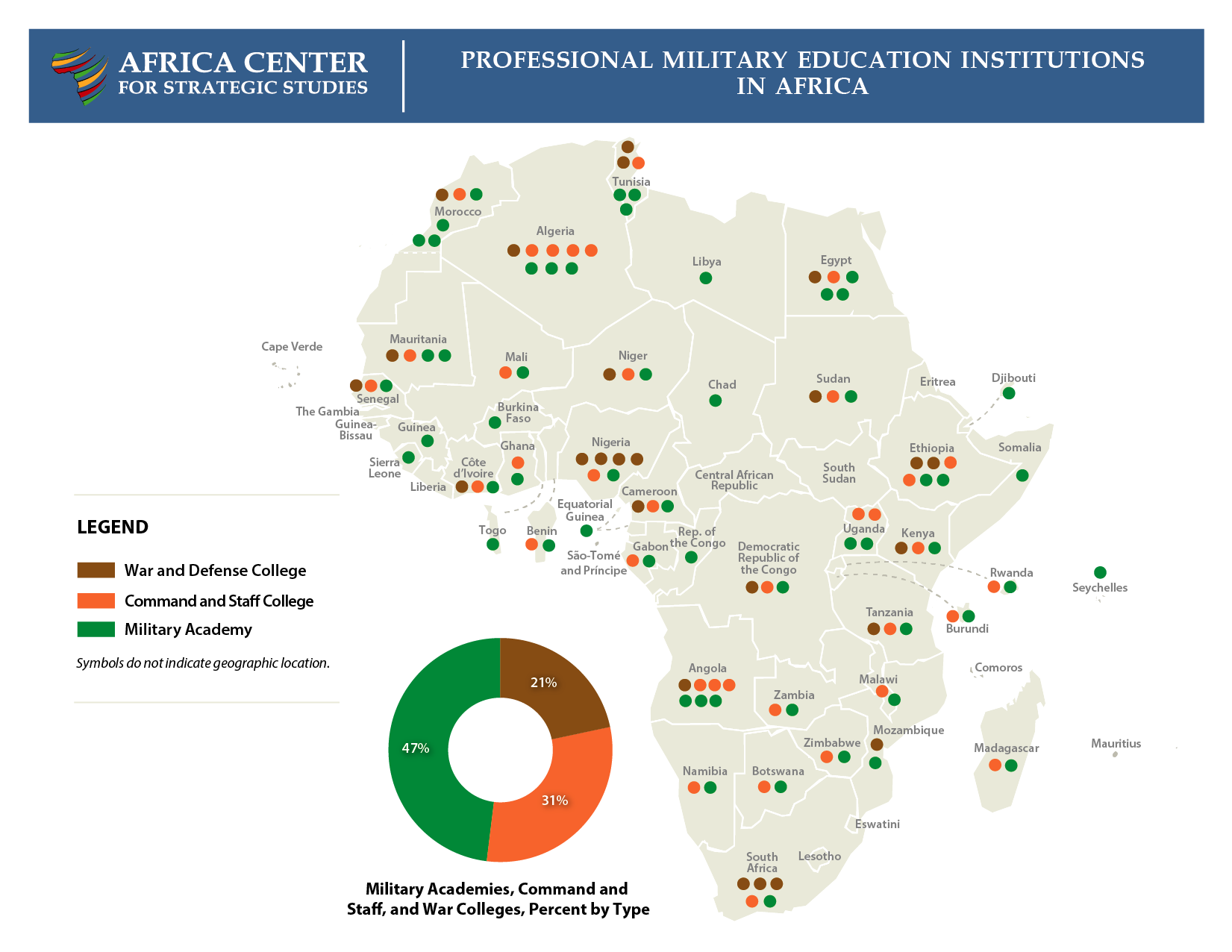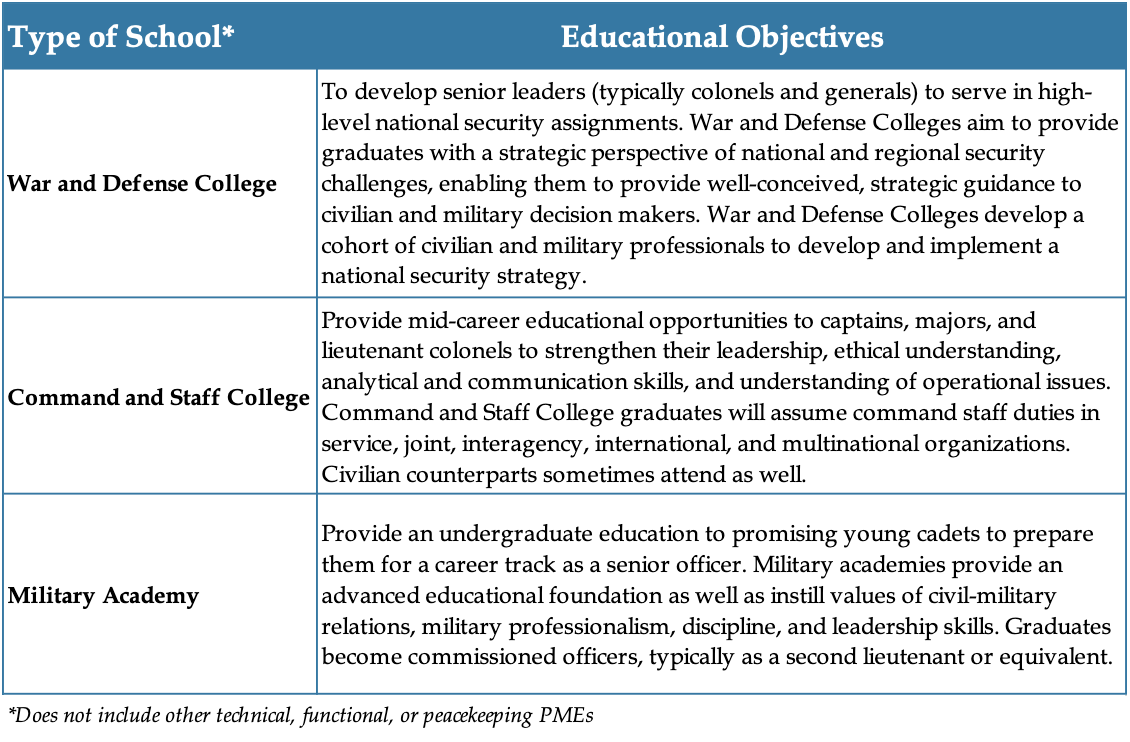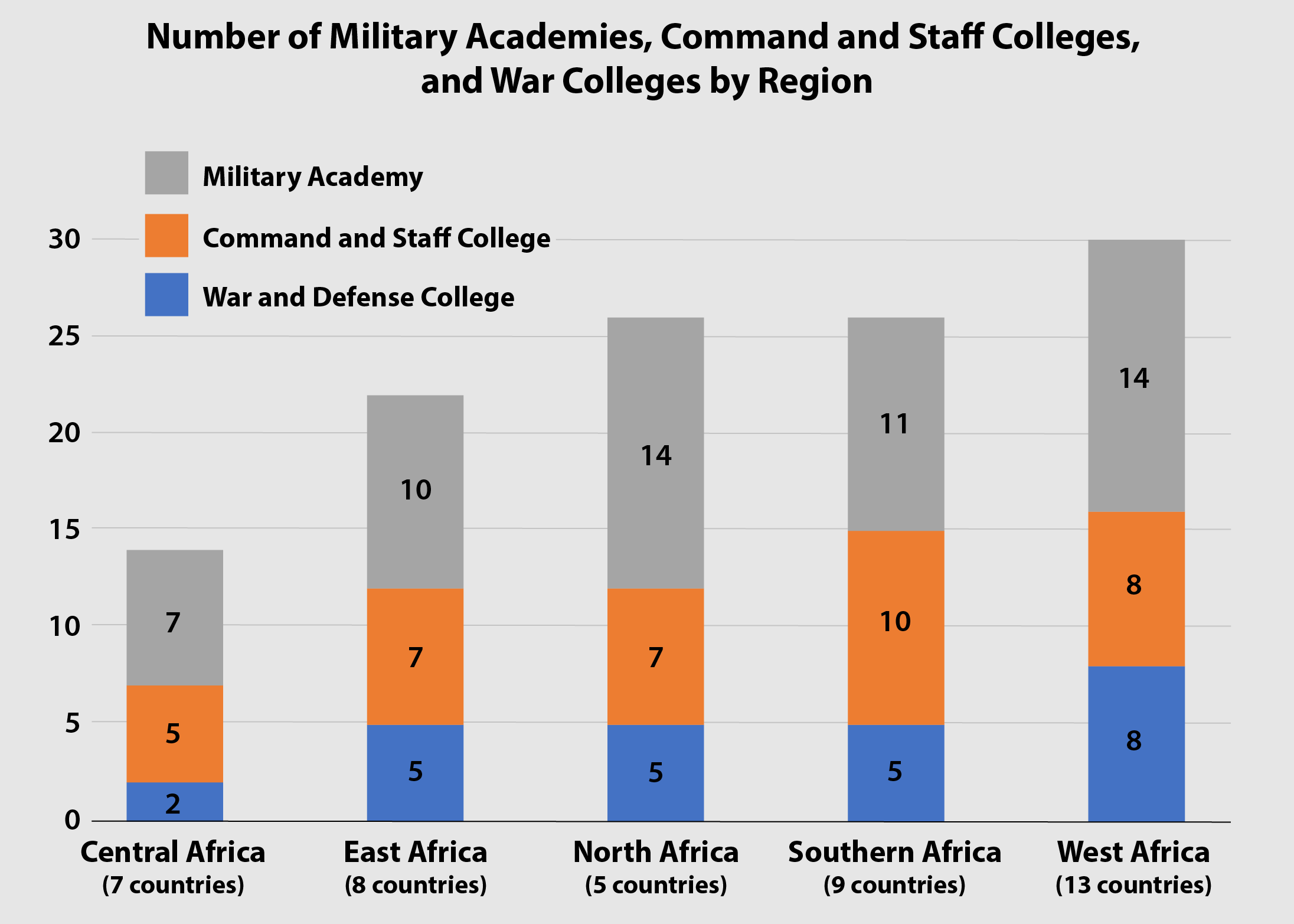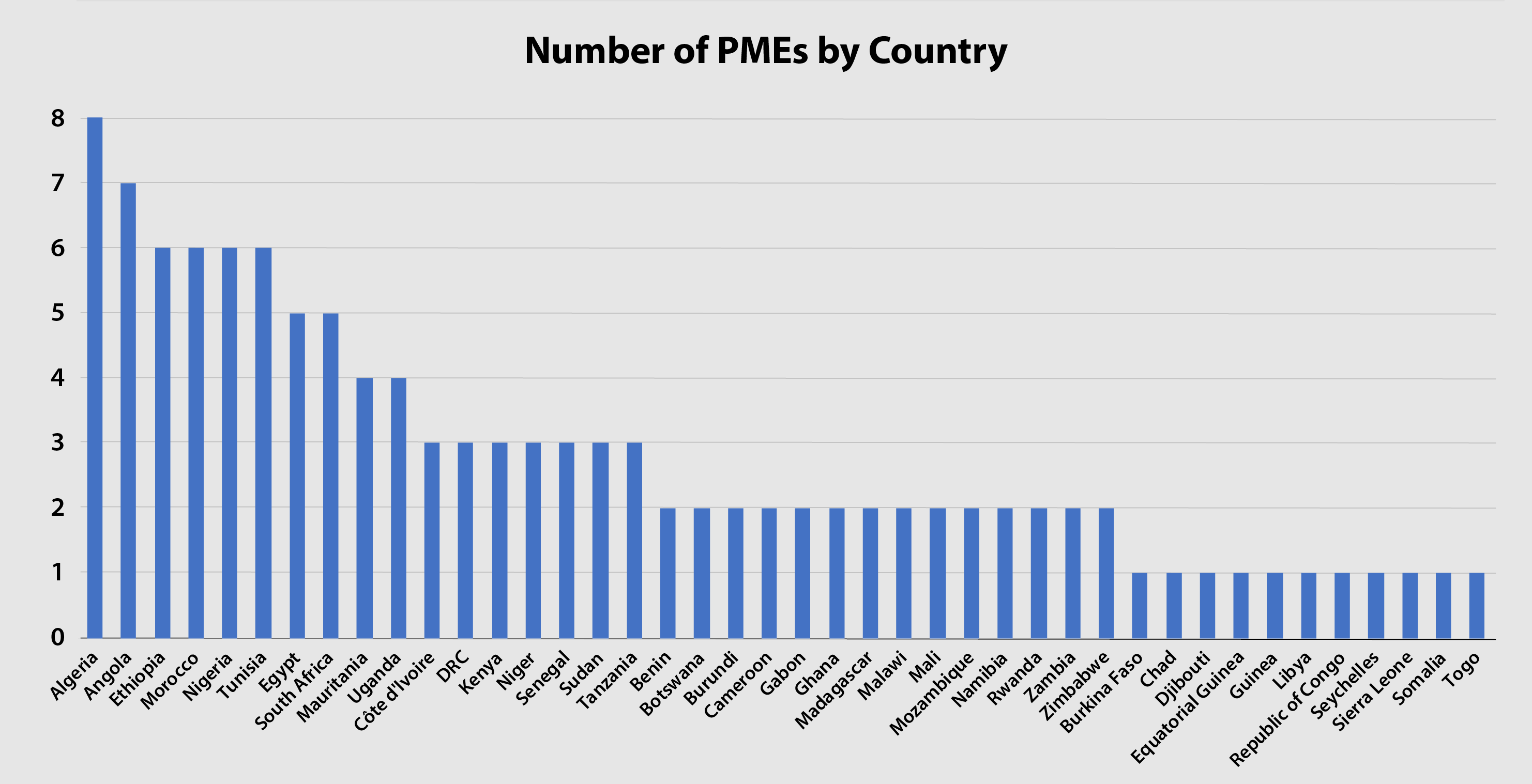By the Africa Center for Strategic Studies
Professional military education institutions aim to foster capable and apolitical militaries to uphold the constitution and serve democratically elected civilian leaders. To do so, however, they must be grounded in a culture that reinforces these values.
Click here for printable PDF version.
Highlights
- Africa has recently experienced a spate of coups and increasingly politicized militaries, underscoring the need to strengthen military professionalism in Africa.
- This politicization obscures the genuine progress that has been made in building a professional officer corps within certain African militaries, even if that progress is partial and varies widely across the continent.
- Strengthening professional military education (PME) institutions is one way to improve military professionalism in Africa. Effective PMEs can instill a commitment to democratic civil-military relations and citizen security, shape a strategic vision, advance understanding of national and regional security strategy development, and enhance a service ethos within the officer corps.
- With over 118 military colleges on the continent, Africa has a solid base of PME institutions. Since 2015, six countries have established War Colleges (Côte d’Ivoire, the Democratic Republic of the Congo, Mauritania, Niger, Nigeria, and Senegal), four have created Command and Staff Colleges (Burundi, Malawi, Niger, and Senegal), and three have created military academies (Gabon, Mauritania, and Somalia).
- 42 out of 54 African countries (roughly three-quarters) have a military academy, 26 countries (approximately one-half) have a Command and Staff College, and 18 countries (a third) have a War or Defense College.
- These are relatively evenly distributed across Africa’s subregions.
- The presence of a PME institution is not in itself evidence of stronger military professionalism. In fact, the existence of a PME is not correlated with more trust in the military. Rather, greater attention is needed to strengthen the curricula and culture within PMEs on the values of democratic civil-military relations and an apolitical military. In so doing, the prestige of PME institutions can be enhanced and graduates will earn the enormous responsibility bestowed on them to bear arms to protect citizens.
- Not all countries need Command and Staff or War and Defense Colleges, as the cost for countries with smaller-sized armed forces and limited defense budgets is not justified. In such cases, officers can attend PME institutions in neighboring countries.
- Of the countries that have experienced a military coup since 2020 (Burkina Faso, Chad, Guinea, Mali, and Sudan), only Sudan has all three types of PME institutions. Of the West African countries, only Mali has a Command and Staff College, and none have a War or Defense College.
- The coups in each of the three West African countries were led by mid-level officers, highlighting the importance of inculcating values of military professionalism among all military ranks.
- A survey of African military professionals shows that PME opportunities are one of the most formative experiences in the careers of African security sector professionals. Moreover, young officers have especially high ideals of the public service role that militaries can play, though younger cohorts of officers are less likely to associate these values with their services
Additional Resources
- Kwesi Aning and Joseph Siegle, “Assessing Attitudes of the Next Generation of African Security Sector Professionals,” Africa Center Research Paper No. 7, Africa Center for Strategic Studies, May 2019.
- Abel Esterhuyse and Benjamin Mokoena, “The Need for Progress in an Era of Transformation: South African Professional Military Education and Military Effectiveness,” Stability: International Journal of Security & Development 7, no. 1 (2018).
- Pat Paterson, “Measuring Military Professionalism in Partner Nations: Guidance for Security Assistance Officials,” Journal of Military Ethics 18, no. 2 (2019).
- Hubert de Reviers, “L’École de Guerre et la formation des élites militaires,” Revue Défense Nationale No. 798 (2017).
- Emile Ouédraogo, “Advancing Military Professionalism in Africa,” Africa Center Research Paper No.6, Africa Center for Strategic Studies, July 2014.
- Mathurin C. Houngnikpo, “Africa’s Militaries: A Missing Link in Democratic Transitions,” Africa Security Brief No. 17, Africa Center for Strategic Studies, January 2012.
Credit | Africa Centre

